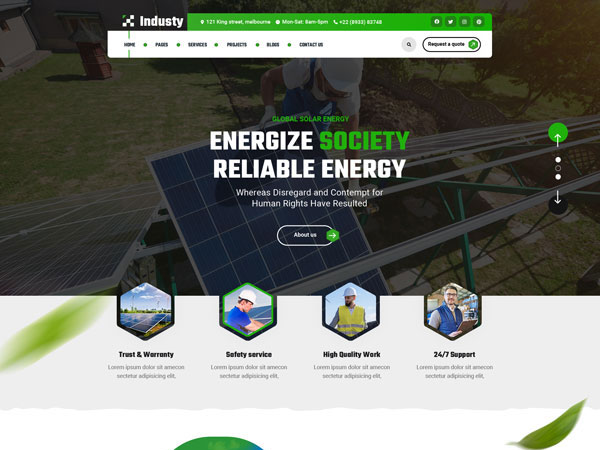Ghanas Future Redefined Political Realignment and Economic Strategies Shaping trending news in ghana
- Ghanas Future Redefined: Political Realignment and Economic Strategies Shaping trending news in ghana, Signaling a New Era of Development.
- Political Realignment and its Impact
- Economic Strategies for Sustainable Development
- The Role of Technology and Innovation
- Fiscal Responsibility and Debt Management
- Impact of Regional Trade Agreements
- Navigating Challenges and Building Resilience
Ghanas Future Redefined: Political Realignment and Economic Strategies Shaping trending news in ghana, Signaling a New Era of Development.
Ghana is currently experiencing a dynamic period of transformation, with shifts in its political landscape and innovative economic strategies taking center stage. Understanding the trending news in ghana requires a deep dive into these evolving circumstances. From policy changes to emerging market trends, the nation is navigating a complex path toward sustainable development and increased global relevance. This article will explore the key factors driving these changes and their potential implications for the future.
Recent developments signal a concerted effort to redefine Ghana’s trajectory. The interplay between political realignment and strategic economic initiatives is creating both opportunities and challenges. A need for transparency and accountability is becoming paramount as the nation strives to build a strong and resilient economy, capable of withstanding global shocks and fostering inclusive growth. This period demands careful analysis and a nuanced understanding of the forces at play.
Political Realignment and its Impact
The Ghanaian political arena has witnessed some considerable activity in recent months, marked by shifts in alliances and a renewed focus on good governance. These changes are not merely cosmetic; they represent a fundamental re-evaluation of the nation’s priorities. Efforts to strengthen democratic institutions and promote a more inclusive political climate are crucial for long-term stability. The focus is now on ensuring that political discourse leads to tangible benefits for all citizens. Furthermore, the youth demographic is increasingly vocal in demanding greater participation in the political process, signaling a demand for responsive and representative leadership.
| New Patriotic Party (NPP) | Economic Growth & Infrastructure | 38% |
| National Democratic Congress (NDC) | Social Welfare & Job Creation | 35% |
| Convention People’s Party (CPP) | Pan-Africanism & Self-Reliance | 8% |
| Progressive People’s Party (PPP) | Corruption Eradication & Education | 5% |
Economic Strategies for Sustainable Development
Ghana’s economic future is inextricably linked to its ability to diversify its revenue streams and attract foreign investment. The government’s emphasis on value addition to raw materials, particularly in the agricultural and mining sectors, is a positive step toward achieving this goal. However, sustainable development requires a holistic approach that addresses issues such as infrastructure deficits, access to finance for small and medium-sized enterprises (SMEs), and skills development. Creating an enabling environment for businesses to thrive, while also protecting the environment, is a delicate balancing act. Initiatives focusing on renewable energy and green technologies are vital for a future-proofed economy.
- Strategic Investments: Focus on infrastructure development, especially in transportation and energy.
- Diversification of Economy: Shift away from reliance on cocoa and gold exports.
- Promote Local Businesses: Support SMEs through access to credit and training.
- Enhanced Regional Trade: Leverage the African Continental Free Trade Area (AfCFTA).
The Role of Technology and Innovation
Technological innovation is playing an increasingly important role in shaping Ghana’s economic landscape. The burgeoning fintech sector is providing access to financial services for previously underserved populations. Furthermore, advancements in agricultural technology (agritech) are improving crop yields and enhancing food security. To fully capitalize on these opportunities, strategic investments in digital infrastructure, education, and research and development are essential. The government’s commitment to fostering a thriving startup ecosystem is commendable, but more needs to be done to attract venture capital and provide mentorship opportunities for entrepreneurs. The potential for Ghana to become a regional hub for technology and innovation is considerable, but requires consistent policy support and a skilled workforce.
Fiscal Responsibility and Debt Management
Effective fiscal management is crucial for maintaining macroeconomic stability and creating a conducive environment for investment. Ghana’s debt levels have been a growing concern in recent years, requiring careful attention and prudent borrowing practices. The government’s efforts to improve revenue mobilization and reduce wasteful spending are steps in the right direction. However, transparent and accountable budget management is paramount for building public trust and ensuring the long-term sustainability of the nation’s finances. Exploring alternative financing mechanisms, such as public-private partnerships, can help alleviate the burden on public funds, funding more crucial projects for the nation like infrastructure and essential services. Strengthening regulatory frameworks and tackling corruption are also essential components of a sound fiscal strategy.
Impact of Regional Trade Agreements
Ghana’s participation in regional trade agreements, particularly the African Continental Free Trade Area (AfCFTA), presents a significant opportunity to boost trade and investment. The AfCFTA has the potential to unlock vast economic opportunities for African countries, creating a single market for goods and services. However, realizing the full benefits of AfCFTA requires addressing challenges such as non-tariff barriers, trade facilitation issues, and infrastructure deficits. Harmonizing trade policies across member states and investing in cross-border infrastructure are essential for facilitating the free flow of goods and services. Successful implementation of AfCFTA could position Ghana as a leading trading hub in West Africa, attracting foreign investment and creating jobs.
- Increased Market Access: AfCFTA expands Ghana’s potential market beyond its borders.
- Diversification of Exports: Opportunities to export a wider range of products to other African nations.
- Attracting Foreign Investment: A larger unified market attracts greater foreign direct investment.
- Boosting Economic Growth: Increased trade and investment contribute to overall economic growth.
Navigating Challenges and Building Resilience
Despite the positive momentum, Ghana faces numerous challenges that could impede its progress. Climate change, for example, poses a significant threat to agricultural production and water resources. Addressing these challenges requires proactive measures, such as investing in climate-resilient agriculture, promoting sustainable water management practices, and diversifying sources of energy. Building resilience to external shocks, such as fluctuations in global commodity prices, is also crucial. Strengthening social safety nets and investing in education and skills development can help mitigate the impact of economic downturns on vulnerable populations. Maintaining political stability and upholding the rule of law are also essential for fostering a conducive environment for sustainable development. Ongoing economic changes reflect trending news in ghana
Ghana stands at a pivotal moment in its history, poised to embrace a new era of development and prosperity. Successfully navigating the complexities of political realignment and economic transformation will require strong leadership, sound policies, and a collective commitment to building a brighter future for all Ghanaians.







